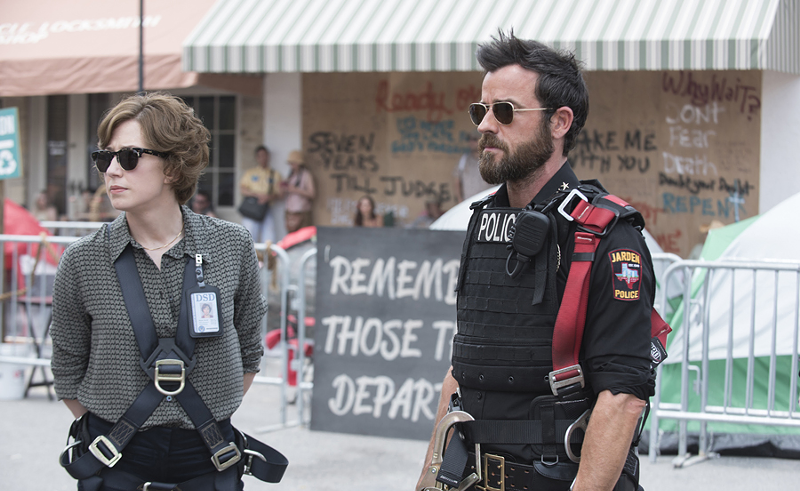On Oct. 14, 2011, 2 percent of the human race — 140 million people — vanished into thin air in a mysterious worldwide event. Where did they go? Did they join an afterlife shared by all those who have died — is heaven real? Are they in another place specifically for the “departed”? Why were they chosen over everyone else? Can this phenomenon be explained by religion or science?
At the same time, anyone who’s followed this show or is familiar with creator Damon Lindelof and his past works like Lost knows by now that we’ll probably be left with even more questions. This spiritually shaking psychological drama promises more existential crises than enlightened answers.
As unsatisfying as that may sound, you don’t watch The Leftovers to have life’s mysteries solved. This show has never really been about the departed, but who remains — the Guilty Remnant, as one emerging cult calls itself — and how they cope with losing loved ones or being left behind.
The Leftovers is based on the titular book by Tom Perrotta, which provided much of the story explored in Season 1. The second and third seasons depart (no pun intended) from the source novel, allowing Lindelof to weave an even more intricate, strange, mind-blowing tale that takes us from suburban New York to Texas to, finally, Australia — the almost-literal end of the world.
With a storyline so complex and crazy — last week’s episode saw Kevin (Justin Theroux) kill himself (something temporary that he can “come back” from) to enter an alternate universe/limbo where he is both the Guilty Remnant-approved President of the United States and the assassin tasked with killing him — you really count on the characters to make it work, and this cast does a lot of heavy lifting.
Over the course of three seasons, we’ve seen Theroux play Kevin as a father and husband, a police chief and the son of a mentally ill (or perhaps enlightened) man who might be exhibiting similar behaviors himself. He’s evolved into a reluctant Jesus figure, with friend and reverend Matt (an always excellent performance by Christopher Eccleston) penning the biblical Book of Kevin. His father, Kevin Sr. (Scott Glenn, another showstopper), believes his son can stop an apocalyptic flood he thinks is coming on the impending seventh anniversary of the Sudden Departure. But when given the chance in last week’s episode, he chooses instead to ride out the storm.
I’d argue the true star of The Leftovers is Nora (Carrie Coon). No one was affected by the Departure quite like Nora, who lost her children and husband — her entire family — in that ominous event. She’s tried to fill the void with work (investigating departures for the government), relationships and risky behavior (remember when she used to pay people to shoot her while wearing a bulletproof vest?). It seemed like she was at her best early this season, but when given the dubious opportunity to reunite with her family, she cannot resist. The final episode, “The Book of Nora,” will at least give us a glimpse into where she ends up.
Coon is fantastic, and between her performances here and in FX’s Fargo, we should definitely be seeing her on the awards circuit later this year.
Finally, there’s the music. A lot of series these days have excellent scores and soundtracks, but this one in particular is noteworthy as it plays almost as big a role as do Theroux and Coon. Composer Max Richter creates a moving and otherworldly score, which is often mashed up with popular tunes from ABBA to the Wu-Tang Clan, creating a whimsically weird musical landscape that perfectly mirrors the story.
At its core, The Leftovers looks at belief — religious and spiritual ones, trusting in an afterlife or that lost ones are in a “better place,” believing in one’s state of mind even if it might be insane. There’s room for all types of belief in The Leftovers, under one condition: They’re all subject to question.
CONTACT JAC KERN: @jackern


